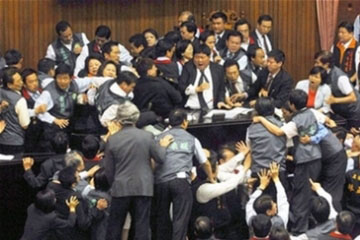|
| |
|
| |
|
|







|
|
TCHS 4O 2000 [4o's nonsense] alvinny [2] - csq - edchong jenming - joseph - law meepok - mingqi - pea pengkian [2] - qwergopot - woof xinghao - zhengyu HCJC 01S60 [understated sixzero] andy - edwin - jack jiaqi - peter - rex serena SAF 21SA khenghui - jiaming - jinrui [2] ritchie - vicknesh - zhenhao Others Lwei [2] - shaowei - website links - Alien Loves Predator BloggerSG Cute Overload! Cyanide and Happiness Daily Bunny Hamleto Hattrick Magic: The Gathering The Onion The Order of the Stick Perry Bible Fellowship PvP Online Soccernet Sluggy Freelance The Students' Sketchpad Talk Rock Talking Cock.com Tom the Dancing Bug Wikipedia Wulffmorgenthaler |
|
bert's blog v1.21 Powered by glolg Programmed with Perl 5.6.1 on Apache/1.3.27 (Red Hat Linux) best viewed at 1024 x 768 resolution on Internet Explorer 6.0+ or Mozilla Firefox 1.5+ entry views: 1578 today's page views: 127 (5 mobile) all-time page views: 3400846 most viewed entry: 18739 views most commented entry: 14 comments number of entries: 1228 page created Sun Jul 13, 2025 04:08:48 |
|
- tagcloud - academics [70] art [8] changelog [49] current events [36] cute stuff [12] gaming [11] music [8] outings [16] philosophy [10] poetry [4] programming [15] rants [5] reviews [8] sport [37] travel [19] work [3] miscellaneous [75] |
|
- category tags - academics art changelog current events cute stuff gaming miscellaneous music outings philosophy poetry programming rants reviews sport travel work tags in total: 386 |

| ||
|
Monopoly Deal Discovered the charms of a nifty card game called Monopoly Deal recently, and spent several hours trying it with my cousins (who had some experience with it in social group settings/NS[!]). It turned out to keep much of the fun of the classic original, while upping the pace significantly; The description and basic rules are simple and listed on Wikipedia (also see the Hasbro demo), and therefore I will assume prior knowledge and continue on to the observations.
All in all, an addictive game, but best with at least three players - with two, it's often difficult to stage a comeback after falling behind in the first couple of turns. FourOPoly Deal? Hmm.  Sian, I tried to HOR? his Anyhow Collect Rent but he IFUL it (Here, thanks to occ aka mm for organizing the San Katong Laksa steamboat outing, and too bad to tpk) The Singaporean Deal Some days ago, the government announced the National Service Recognition Award (NSRA), which effectively grants newly-minted NSmen S$9000 (S$10500 for commanders), and slightly less for NSmen who have already completed some of the milestones (and unfortunately, nothing for those who have already completed it all). Not surprisingly, there have been some rumblings online about how the award "cheapens citizens' contributions" and is even "insulting", in such diverse (well, ok, maybe not) forums such as the Straits Times discussion board and the not-very-pro-incumbent-regime Temasek Review. The major complaints are that:
Taking these one by one - for the first point, I have to say that NS allowances are rather piddly, even after recent increases; Most NSmen should expect to get around S$500 a month for their entire service period (they do get three hots and a cot), while even officers mostly top out at about S$1000. In comparism, a McJob at S$4 an hour would pay S$640 for an 8 hour day, weekday-only workmonth, and I daresay a motivated and hardworking person with some skills would be able to make double or triple his NS pay in comparably-demanding civilian job(s). This may not be too much of a sacrifice for the moderately well-to-do, but can be quite a bother for poorer citizens, especially if the family relies on the soon-to-be NSman as main breadwinner. Taking this further, it can be argued that the two years of service has a compounded effect on citizens' future earnings, which can conservatively tot up to some S$150000 by age 40 (well, the author of that article doesn't include the NS allowance in his table, but the point stands) It is also true that tacking money onto an award might change one's perception of a task (see the The Induced-Compliance Paradigm) - but then would paying market rate for NS inculcate more pride (servicemen get the recognition of being paid closer to what they are worth), or less (since it's now effectively just another [forced] job)? [Sidenote: Personally, I think it would be interesting to see how well a completely voluntary National Service term would work - would those might later claim that NS has taught them a lot etc, still sign away two years of their lives if they had the choice? Would the love of country/sense of responsibility/social stigma of not contributing be sufficient to inspire/shame the majority of young men into the armed forces, or would personal pragmatism prevail, and make passing up this presentation of patriotism prudent? Some questions may best be left unanswered] Second point: Yes, it's unfair to past batches of reservists. While nobody has quite been able to solve this problem in its general form yet (see the NUS context), in this case it shouldn't be much more difficult to simply give the award to all NSmen past or present (since NS only began in 1967, I daresay the vast majority of servicemen are still alive), and adjust the monetary component accordingly (or even just give a token sum). While a couple of retired servicemen have come out to say that it doesn't quite matter to them and that they have moved on, it isn't hard to imagine that at least some of the old guys could really use the money; As to why the award (which must have been designed by extremely-smart policymakers) is structured this way... is anybody's guess. Leading into the third point, a possible, if extremely cynical, conjecture is that the younger guys are less beholden to party loyalties, and therefore shaping the award to benefit them the most would get the most bang (for bang, read votes) for the buck. While the truth is likely not so cruel (I hope), it is hard to believe that the basic well-timed-goodies-for-support exchange was completely absent from policymakers' minds - because it does work much the same way, almost everywhere, unless the goodie-giver is extremely disliked. And as to the fourth and final CPF-as-black-hole complaint - I admit that I knew very little of the CPF, other than the fact that many netizens didn't think much of it (which may be a skewed selection of opinion). A bit of reading up reveals that it's a form of social security for Singaporeans (alright, I had that figured out), and that both employers and employees (are forced to) pay into the employee's CPF account, which is mostly used for housing, retirement and insurance purposes. Sounds pretty reasonable - so why the hate? Basically, the issue is the government directing how one's money is being spent (or not). True, all governments do that by collecting all sorts of taxes, so by itself this is nothing new (or popular). Indeed, whichever way one carves it up, the CPF is still better than a tax, since it's still technically your money, even if you can't quite use it the way you want to - at worst, it goes to your next of kin upon your demise. Still, it stops people from spending their money the way they want to (which is the only way it ought to be spent, after all). Oh, of course, if one desires to be a model citizen and buy "subsidized" public housing (another common grouse) and guarantee oneself a pension so as not to burden society, the CPF would mostly do what they would have done anyway. The yield of 2.5%-4%, while not out of the ordinary, doesn't look too bad compared to say 30-year US Treasury bonds (currently at 3.78%), at least until the boom years return. However, given that the average return of the stock market has been known to be 8-10% over the long term (a not insignificant difference from even 4%, after compounding - you do the math), it might be understandable that some citizens would at least want to be allowed to choose that option. But perhaps the biggest concern is the, let us say translucency of the whole gig. In some reasonably (in)famous words, "Where is the money?", the full answer to which not even an elected president could get. This is also before taking into account the continually shifting goalposts where retirement (and now, property) is concerned, or if it will even come. So, another policy ends up in the netizen could-do-better bin. But, objectively, I believe Singaporeans have got a good deal. Eh, wait! Knn, how can? Gahment bootlicker! The Raw Deal - John Kenneth Galbraith (not that liberals are all that selfless...) Let's see - to begin with, the food's good, crime's low, place's clean and corruption's virtually unheard of. Frankly, there are far, far more places where average conditions are worse than Singapore, compared to where they are better. Which doesn't mean that there's nothing to complain about - but what about the favourite destinations of emigrating Singaporeans (about ten thousand annually): the U.S.A, Canada, Australia, New Zealand, etc? Clearly they have their own set of pros and problems - yes, one might gain political and personal freedoms and space and a relaxed lifestyle and welfare, but in return one gets to dip into a mixed bag of guns and drugs and poorly funded schools and taxes to support that welfare, depending on exactly where one settles; One might not see much of the darker side in upscale districts, but this is as disingenuous as a resident of Sentosa Cove claiming that Singapore is as good as it gets.  Freedoms freely expressed (Source: Teamexpansion.org) And ironically, Singapore's emigrants being the immigrants of those countries, it turns out that at least some of the citizens of the U.S. and Canada and Australia etc have similar doubts to those that some locals hold about mostly-mainland-Chinese newcomers; Just as Singaporeans bemoan fresh arrivees from taking their jobs for less, others elsewhere complain in the same manner. The grass is greener everywhere, and everywhere people wonder why they have to give up a share. Alright, Singapore may be laxer in doling out actual citizenship than say the U.S.A, but hey, we're the most popular by percentage, so why not make people happy, right? In fact, if one knows the right websites to visit, it is not hard to get the impression that any given government is a self-serving, little-man-ignoring, hopelessly incompetent collection of greedy underqualified morons. Mark Twain: "Suppose you were an idiot. And suppose you were a member of Congress. But I repeat myself." But that's what governments do - if everyone agreed on the issues, there would be no need for politicians, parties, or power blocs. Sadly, they don't, and it is almost a given that there will be unhappy citizens. From the economy to gay marriage, military action to immigration policies, the man in the street is sure that he has The Answer. Politics is a strange beast, though. I doubt that it's a science, whatever university departments say, and it barely looks like art either. Many of the causes and effects are fiendishly hard to disentangle on a national level, and since a perfect state has yet to exist, there will always be dissent. Still, it appears likely that there are "better" and "not as good" states - so how do we tell them apart? This is difficult too, given that people prize different values (one person's wish for an idyllic, less crowded lifestyle may be at odds with his neighbour's drive for educational achievement and economic prosperity). While admittedly a very crude measure, I think that the degree of actual action taken against the current government is a possible indicator (aside from health and life expectancy etc, in obvious negative examples). When people feel that they truly have been grossly mistreated, or driven into desperate straits, mass violence is the inevitable eventual result. It might sound strange, but Singapore is hardly the only developed nation that takes action against protestors (it has to be said that Singapore is good at it); Students of history can observe that Singaporeans were far from averse to rioting, despite the very real risks of injury and arrest (surely such demonstrations were not legal then as now?). Indeed, other than the luckless Dr. Chee and his associates, small vigils and the like appear tolerated. My conclusion is that the majority do in fact think that life here is, on the balance, alright. Not quite ideal, and thus open to the usual (often faceless) complaints, but sufficiently tolerable as not to warrant any more concrete efforts. Of course, this is not to say that satisfaction, or even gratefulness, must be due our well-renumerated administrators... [To be continued, maybe] The Double Deal  Double Take (Source: Redcafe.net) May they never retire. Next: Melaka Days
Linkback by
|
||||||||||
 Copyright © 2006-2025 GLYS. All Rights Reserved. |
||||||||||